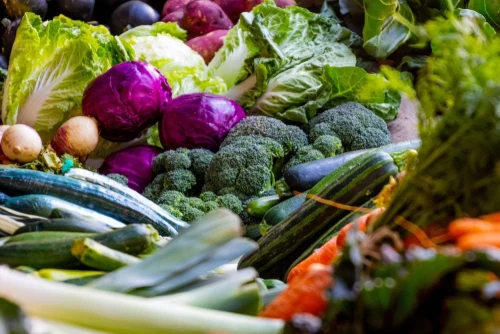Our Rochester Nutritionist busts some of the biggest food myths
With the endless stream of "extreme" food myths out there - we attempt to bust some of the more common ones:
Eating carbs will make me fat
Similar to fat, it’s important to focus on the type of carbohydrate you are eating. We need starchy carbs to give us energy, and they should make up one third of our diet. Instead of cutting them out, make some smart switches and cut down on the more unhealthy carbs, like highly refined flour products.
Microwaves remove nutrients from veg
According to research, boiling can be the worst way to cook, whereas microwaving exposes them to heat more briefly so they retain more goodness.
Red meat is bad for you
You should limit your consumption of red meat to 500g a week – the World Cancer Research Fund suggests limiting your consumption of red meat to 500g a week and cutting out processed meat can reduce your risk of bowel cancer. However – a diet that includes lean red meat can lower levels of bad cholesterol and providing iron, zinc and protein.
Red wine is the only alcoholic drink that’s good for your heart
Studies have found that red wine is said to have heart-protecting. But studies found that one alcoholic drink per day helped reduce the risk of heart disease, regardless of whether it was beer, wine or spirits. Regardless of this, drinking more than this regularly, though, increases your risk.
Low-fat food is better for you
Don’t be fooled by the labels. A low-fat food item can actually contain the same amount (and sometimes more) of calories as the full-fat version. WHY? Low Fat foods tend to use sugar to cover up the change in flavour. A study has shown that people ate 28% more chocolates if they were labelled as low-fat and this led to an overall increase in calories consumed.
Vegetarian and vegan diets are healthier
We are surrounded by the “Vegan” graze at the moment with many thinking it’s a healthier alternative. However, vegan and vegetarian diets are only healthier if you replace these foods with worthwhile alternatives. Replacing the meat and dairy in your diet with refined carbs and sweets will not make the switch to vegetarianism or veganism a healthy one.
Organic food is more nutritious
It is often believed that organic food is more nutrition – but just because it’s more expensive doesn’t mean it’s better for you.
Fresh fruit is far better for us
Fresh fruit does remain the better source of vitamin C. However, dried, frozen and canned fruit also count towards your recommended five daily portions of fruit and veg. Just be mindful about any added sugars in dried or canned fruits.
Cooking vegetables completely is the most nutritious
Steaming vegetables keeps intact the most number of nutrients. Microwaving is next best, with stir-frying and boiling resulting in the greatest nutrient loss because of the veg’s exposure to high heat and vitamins leaching into the water.
Booze before bed helps you sleep deeper
It may be tempting to think that a drink before bed helps you fall asleep quicker – and although alcohol does allow healthy people to fall asleep quicker and sleep more deeply for a while, but it reduces rapid eye movement (REM) sleep. Disruptions in REM sleep may cause daytime drowsiness, poor concentration, and rob you of needed sleep.
Gluten free diet is healthier
Unless you have a legitimate reason to be avoiding gluten – if you have coeliac disease, for example – there is no reason to remove gluten from your diet. As gluten is present in many carbohydrate-based foods, it often makes “Gluten” choices more unhealthy and is why it’s gained such a reputation. However, gluten itself isn’t unhealthy.
Starving myself is the best way to lose weight
NO!! Extreme diets will NOT result in long-term weight loss. In fact, they can sometimes lead to longer-term weight gain. This type of diet is not sustainable. You may also be missing out on essential nutrients as crash diets often limit the variety of food consumed. Your body will become low on energy, and may cause you to crave high-fat and high-sugar foods. This will then lead to eating those foods and more calories than you need, causing weight gain
For any advice or help please contact us directly

